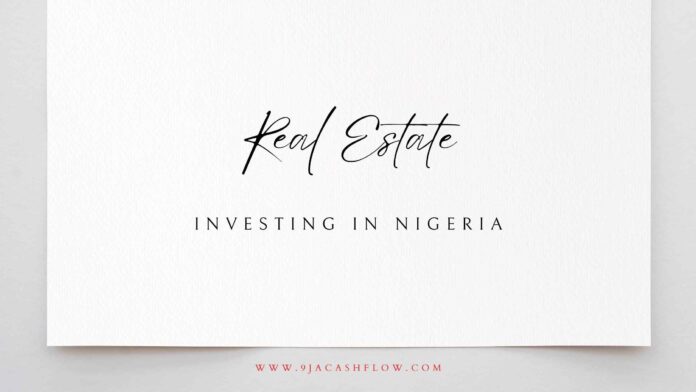Hello Fams,
In today’s article, we’re diving into the topic of whether investing in Real Estate in Nigeria is a good idea, and what percentage of your capital should actually go into it as a Nigerian.
For those who don’t know me, I’m Lalkay, the founder of 9jacashflow.com. I’ve been a digital entrepreneur since 2013 and I share most of what I know on this blog to help young and aspiring Nigerian entrepreneurs.
I recently ventured into real estate investing and to give you some context, back in 2020, I made my first real estate investment by purchasing 1-acre farmland. A 1 acre is equivalent to 6 plots of land. At that time, I didn’t have all the money to pay upfront, so I started with installment payments. Since then, I’ve acquired more farmlands, service plots in good areas, and even ventured into construction projects.
Now, based on my experience, I don’t believe that real estate in Nigeria is a strong long-term investment strategy, especially if you’re young and can spot other opportunities that could provide better returns. Don’t get me wrong, real estate can be a good investment, but there are factors to consider.
Let’s break it down.
1. Inflation: If you invest in real estate in far-off areas, the appreciation might not keep up with inflation. Farmland, for instance, tends not to appreciate as well as properties in urban centers with good facilities.
2. Devaluation: Devaluation happens when your country’s currency weakens against foreign currencies. This makes things cheaper for foreigners but more expensive for locals. I’ve found that if I had invested the same amount I spent on the property in 2020 in dollars instead, I would have gained more Naira due to the currency devaluation than if I sell the farmland now.
Moving on to reason number three:
3. Liquidity: Real estate is a physical asset, and unless it’s in a popular area with a working population, selling it can be challenging, often resulting in selling at a discount.
4. The digital era: We’re in a time where digital assets like cryptocurrencies are gaining traction. More people are interested in owning virtual assets rather than physical land. As the world moves towards this trend, you should be cautious about tying up too much money in real estate.
Last, but not least, be wary of dishonest brokers.
5. Malicious real estate brokers: Many investors, especially those unaware, fall victim to overpriced properties sold by shady brokers promising high returns. Doing thorough market research is crucial to avoid making losses. Some of these brokers sell land to people at times 10 of the current market price so even if you wait 10 years you may not still be in profit.
The only way to circumvent this is to know the real market value of the properties in the location you’re buying. Don’t buy at a price that’s more than triple the current market price.
In conclusion, I don’t exclude real estate from my investment portfolio, but I believe it shouldn’t make up more than 20% of your investments, especially if you’re young and can explore faster-growing opportunities like digital assets and other tech-enabled businesses.
Also, make sure you buy from reputable sources and don’t be lured by the promises of quick, unrealistic returns. Always do your homework. Don’t let them sell you an overpriced piece of shit that you would find hard to sell for profit anytime.
I hope this discussion sheds some light on the Nigerian real estate market and helps you make informed decisions. If you have questions about real estate, crypto, or online businesses, feel free to reach out to me on WhatsApp or Telegram.
Thanks for tuning in, and I’ll catch you next time!
